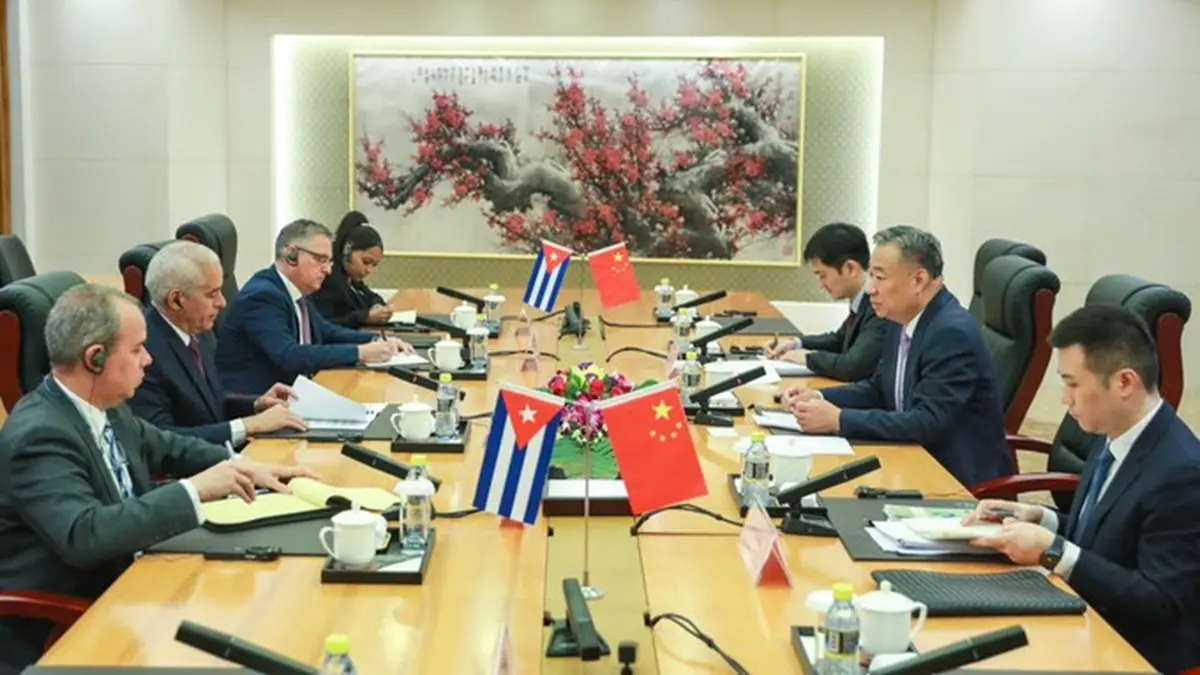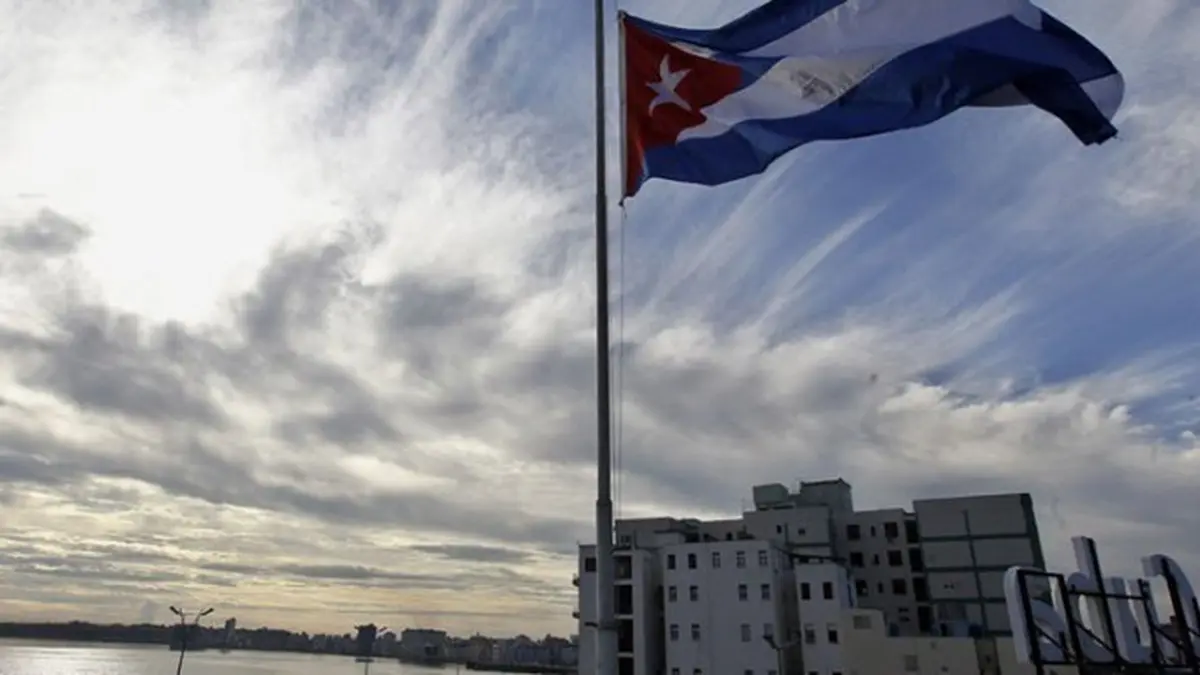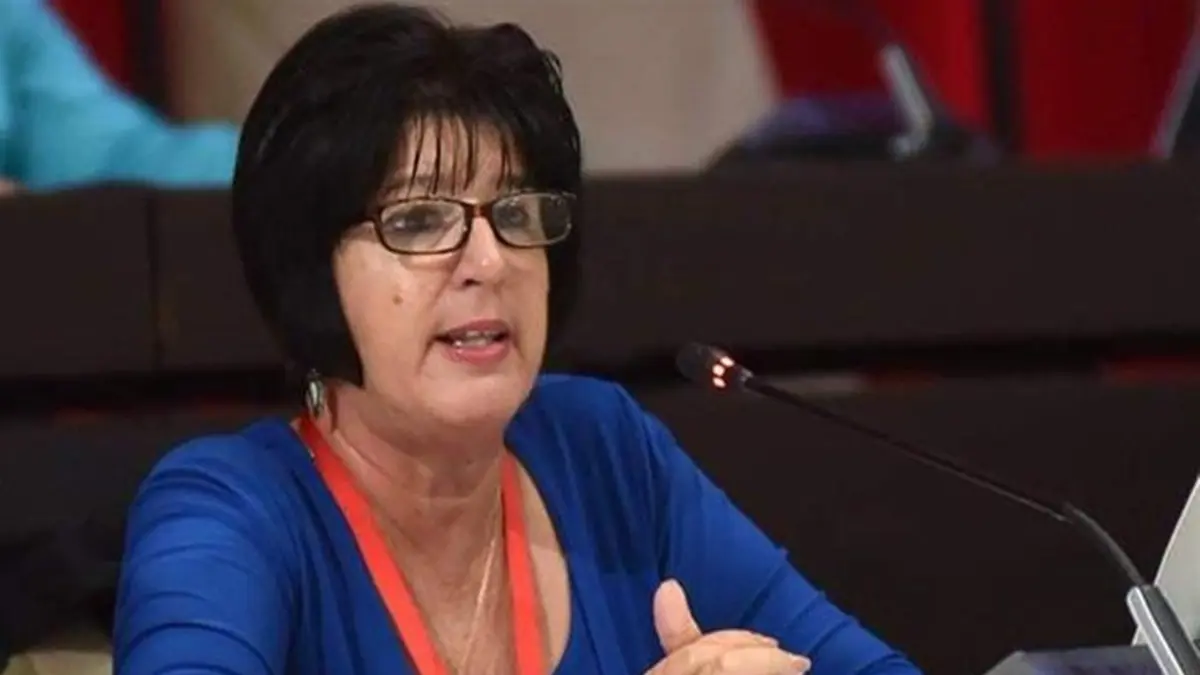Russia, Venezuela, Cuba, and Iran Sign Cybersecurity Agreement

Participants at the roundtable “International Cooperation in the Field of Information Security,” May 29, 2025. X/ @gowithRussia
June 2, 2025 Hour: 11:06 am
Eight more countries also decided to support the UN Convention on Cybercrime.
Last week, Moscow hosted the roundtable “International Cooperation in the Field of Information Security,” an international event that brought together representatives from twelve countries.
RELATED:
Second Round of Russia-Ukraine Talks Ends with Agreements on POWs
At the end of the meeting, the participants jointly committed to supporting the adoption of the United Nations Convention on Cybercrime, a treaty whose aim is to enhance international cooperation, harmonize criminal laws related to cyber offenses, and promote the sharing of evidence and best practices among countries. The convention also seeks to address crimes committed via information and communication technologies, including hacking, identity theft, and the distribution of illegal content.
The joint statement of the Moscow meeting is presented below:
“We, the representatives of Russia, Belarus, Burkina-Faso, Cuba, DPRK, Egypt, Iran, Iraq, Kyrgyzstan, Lao, Nicaragua, and Venezuela,
We stand for a transparent and equitable system of international information security based on the principles of the UN Charter, respect for the sovereignty of states and non-interference in their internal affairs.
We welcome the adoption of the Convention against Cybercrime at the 79th session of the UN General Assembly, which became the first universal agreement achieved within the United Nations to counter the use of information and communications technologies (ICTs) for criminal purposes and constitutes a necessary legal framework for international cooperation in preventing and combating certain crimes committed by means of information and communications technology systems and in ensuring timely collection and sharing of evidence in electronic form of serious crimes.
We commend the work accomplished by the ad hoc Committee to elaborate a comprehensive international Convention on countering the use of ICTs for criminal purposes established on the initiative of Russia and chaired by Algeria, and encourage all States to work in close manner to finalize the Rules of Procedure of the Conference of the Parties at their earliest opportunity.
We invite all States to sign the document at the upcoming ceremony in Hanoi in 2025 and call upon States to continue their engagement in the negotiations in accordance with the UN General Assemley resolutions 74/247 and 75/282 to negotiate an additional draft protocol that would address additional cyber-enabled crimes. Our common goal is to forge cooperation between the competent authorities of States Parties at the earliest convenience in order to counter the use of ICTs for criminal purposes in a comprehensive manner.
We assume that the next step should be to develop within the United Nations universal agreements on other aspects of the international information security, including stability in the ICT sphere. It is important to continue substantive discussions on this issue within the framework of the United Nations and other relevant organizations.
In this regard, we support the adoption at the 80th session of the UN General Assembly of a final decision on the establishment of the Permanent Mechanism on ICT Security in the context of international security based on the principle of consensus and the leading role of States to replace the Open-Ended Working Group on Security of and in the Use of Information and Communications Technologies 2021–2025.
We condemn the use of ICTs for purposes inconsistent with maintaining international peace and security. We call for the peaceful use of ICTs and the non-use of such technologies to interfere in the internal affairs of sovereign States and destabilize the socio-political situation in other countries, as well as to violate national laws, including through low-orbit satellite communication systems and broadband Internet access.
We acknowledge the importance of strengthening international cooperation among States to ensure a solid and strong exchange of knowledge, expertise and best practices with an emphasis on building capacities of the developing countries in the field of ICT-security.
We reiterate the need for promotion, facilitation and provision of technical assistance, and transfer of technology for prevention, detection, investigation and prosecution of crimes committed through the use of ICTs.”
teleSUR/ JF
Source: Russian MFA






